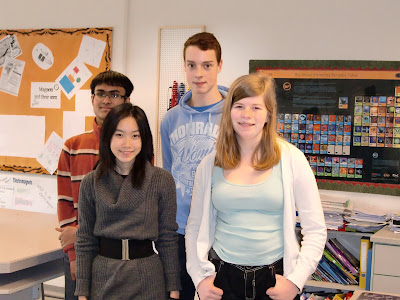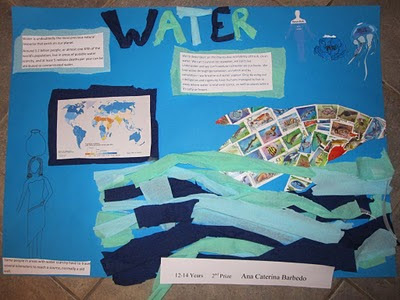This was the first time RSC Belgium's TOTB eliminator was an actual 'head-to-head' competition. The five teams of budding chemists (two from Woluwe, two from BSB and one from St. Johns) had to complete a short written test on their individual chemical knowledge and data interpretation skils and then show teamwork and problem-solving abilities in a practical chemical exercise.

This format more closely reflects the format of the competition that the winners will face at the final to be held at Imperial College London on 31 March 2012. Rita Woodward devised the competition and set the questions.
Close competition
All five teams consisted of four students aged 14 - 16 and were accompanied by teachers. The practical aspect of the competition involved the reaction of sodium thiosulfate and hydrochloric acid. The teams had to determine the correct amount and molarity of solutions so that the reaction completed in exactly 2 minutes and 28 seconds. The reaction was said to be completed when a black cross placed under the reaction flask was no longer visible.
When teams had worked out their own solution, their eforts were timed by judges Prof. Bob Crichton and Dr. Ian Carson. Each team had up to two official 'timed' attempts.
The overall winners were determined by their placing in both written and practical parts of the 'eliminator'.

Although the result was tight the winning team and runners-up both came from Woluwe European School. The winning teams are pictured above, together with proud Woluwe chemistry teacher Julie Deegan. The school will now represent Belgium in the (inter)national final in London and receive the section's Keith Price Cup for 2012. All the students who took part in the competition will also receive certificates.
Everyone who took part in the competition had an enjoyable time with both students and teachers very enthusiastic about the new format. RSC Belgium looks forward to an even bigger and better Belgian TOTB eliminator next year.
Our thanks to all the teachers and students who took part in a fun afternoon of chemistry!
















































